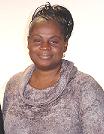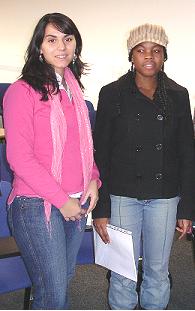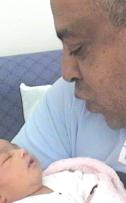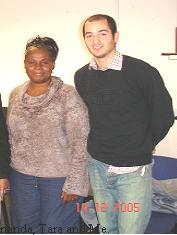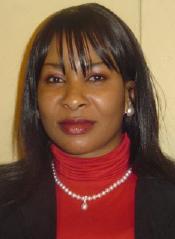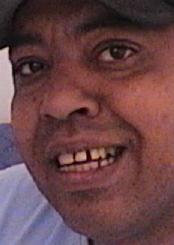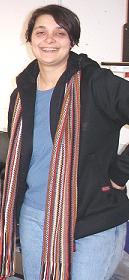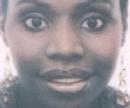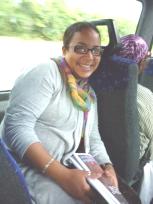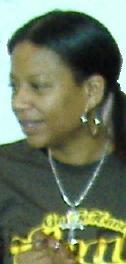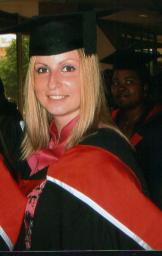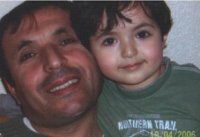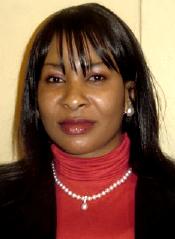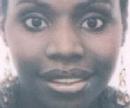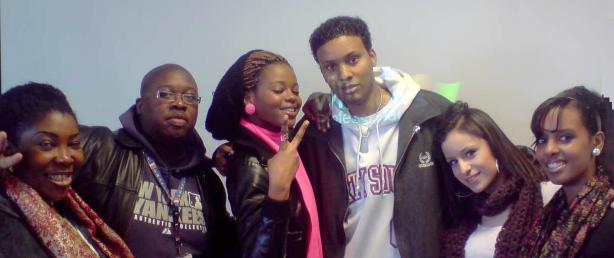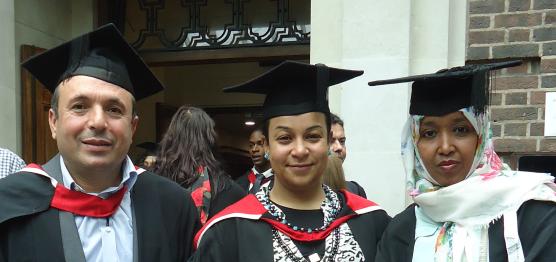The Calendar includes the dates by which you must submit work. It also includes descriptions of the lectures and links to online lecture notes. The submission instructions tell you how to submit your work.
You must read about the essay drafts and essays required - including self-assessment
In the first term you will write an essay about Hobbes and Locke, how society is formed and how this relate to their ideas abut reason
Second term essay titles are chosen in the first three weeks of the first term. You will be able to change your choice later, but choosing early enables your tutor to adapt the lectures to your interests.
The links also take you to detailed advice about writing your chosen essay. This advice should be followed
You must study (follow the links and read) the advice on
Essay Writing Strategy
Referencing
Self assessment
The kind of essay we want
Reasons for failure
You must submit a draft for feedback before your final essay.
Your essay and its draft must have the same title -
unless permission to change has been given, in an email, by the module
leader.
Your draft should be as near to a complete essay as you can
manage.
Click here for
advice on drafting.
Each History of Social Ideas essay should be about 2,000 words long
This is a guideline. Please read the advice
on essay
length
Follow the
submission
instructions
Drafts and essays should have the following parts:
WHAT SHOULD YOUR DRAFT CONTAIN?
You must write a draft:
Your draft should be in complete sentences and paragraphs. It
should
not be in note form.
Your referencing should demonstrate that you are using the
required and
recommended sources for the essay. These will be found with
the advice for
each essay
title
If you use internet sources, you should show that you know how
to use the
key word, key
number
rule in internet
referencing
Different people draft differently. Some people write a
complete essay
as their first draft. Other people write a draft introduction
with some key
paragraphs. We do not want notes (see above), and the nearer
your draft is
to a complete essay, the better. It should also contain
all the parts required. However, it will be
acceptable
incomplete. It is much better to submit incomplete than not to
submit.
Some people add notes about points on which they would like
advice.
Your draft should have an
Introduction that explains
what it is about and gives (at least) an outline of the order of topics. It is
desirable
that it contain a statement of your argument
and a provisional
summary of your
essay.
Your draft should demonstrate that
THE KIND OF
ESSAY
WE WANT:
Different courses have different aims and expect different
forms of
essay. So you need to learn the skill of finding out what kind
of essay is
required.
The course requires competent Harvard referencing as a
condition
of passing. Learning the principles of referencing
thoroughly at the
beginning of the course will mean that you can then
concentrate on the
content of your essay.
Referencing primary
sources is particularly important.
It must not be
copied
(even with some words
altered).
You are unlikely to fail if you follow the essay advice given for
your question - Including the referencing advice
YOU WILL FAIL IF:
Any part of your essay, apart from quotations, is
copied.
You do not demonstrate sufficient knowledge and understanding.
You do not demonstrate sufficient competence at essay writing.
The main reason students fail is their referencing. You fail if;
"What is science?
Compare and contrast the ideas of
Locke,
and
Wollstonecraft.
Discuss these in relation to one or two of the following
theorists, and
develop your own opinion.
Bacon,
Beccaria,
Bentham,
Comte,
Darwin,
Durkheim,
Ford,
Filmer,
Freud,
Hobbes,
James
Mill,
John Stuart
Mill,
Malthus,
Macaulay,
Marx/Engels,
Morgan,
Newton,
Owen,
Poincare,
Popper,
Russell,
Thompson/Wheeler,
Weber,
Wegener.
Use
Social Science History,
Essay 3,
"What is Science? The Ideas of Locke, Hume
and
Wollstonecraft" to develop your own understanding
the difference
between the way Locke and
Wollstonecraft thought about science. Without a clear
understanding of the
difference between their theories, you will get confused.
[Make sure you reference well]
As well as the above essay, you could use the extracts from
Locke's book on
knowledge:
"An Essay Concerning Human Understanding"
Chose your third theorist early. You will not be able
to plan your
essay competently without knowing who you are going to discuss
in relation
to Locke and Wollstonecraft.
Locke and Wollstonecraft, and all the writers with red links,
are writing
theories about how science
should work.
This is called epistemology, which means
knowledge-ology, or
theory of knowledge. (Click on the blue link to see what
Social Science
History says).
You may want to examine how Locke and Wollstonecraft's
theories of
knowledge compare to a modern theorist, such as Karl Popper,
Bertrand
Russell or
Julie Ford and her fairy tale science.
Others are better known for the science (natural or social)
that they wrote than for their theories about science. With
these you could
examine whether the way they develop their theories fits in
with Locke or
Wollstonecraft's epistemologies. Examples discussed below
include
Beccaria (a founder of
criminology as a science) -
Bentham (a founder of
sociology and criminology)-
Filmer -
Freud -
Marx and Engels
and
Newton -
With any of these you could consider whether they stick
carefully to
empirical evidence,
as Locke suggests, or argues
from first principles, speculates and possibly
follows passions,
as Wollstonecraft thinks
necessary.
The order in which you discuss the theorists should be the one
that makes
it easiest to relate them. If you start with the earliest one
you may find
the later one's compare their own theories to his (or hers).
A group on science looked for words they could agree on to
distinguish
some theories. They decided on
theological
for
Filmer,
rational
for
Locke,
Beccaria
and
Wollstonecraft, and
materialist
for
Marx and
Engels.
What do you think?
The essay uses
Social
Science History.
(A required source). You must show how to reference it. Essays
that do not do this adequately fail. Study the advice. Apply it in your
plan and draft to receive feedback so that you can be confident about your
final submission.
Your simplest course is to follow the advice
at the bottom of the web page
or the printed chapter.
To understand how to reference, use
ABC Referencing. Go to the
standard form of
the Harvard system. All Harvard referencing is
developed by
using
and adapting this. As you read down, you will come across
examples that use
Social Science History. These include examples of
how
to reference a
quote from another author (for example, Locke) that is
used in
Social
Science History
Advice on referencing most pages on Andrew Roberts'
web site will be found by clicking on the banner at the top of a page
to go to the referencing advice, which is at the bottom. Some you may need
include
-
timeline
-
people
-
dictionary
-
lecture
notes -
Study Internet
referencing for web pages generally
The referencing for your third author will vary with the
author. Learning
to reference Social Science History should prepare you for
further
referencing.
Timeline and resource links:
Ancient Greece
Plato
Aristotle -
Outline
Plato
and
Aristotle's
concepts of
reason
and
politics. Show
how
they relate these to
gender. Reference
your answer to Plato's
Republic
and Aristotle's
Politics
Plato and Aristotle have very different ideas about the
relevance of
gender to social theory.
Diana
Coole
argues that most theories in western
culture contain some combination of these two positions.
Studying the two
positions could, therefore, give you an intellectual grip on a
lot of other
theories.
See
key concepts) for more about Diana
Coole's ideas. Notice the contrast that she makes between
reason and passion (or appetite). If you look at
the chart about Plato's ideas you will see that reason should
govern passion (appetite) in both politics (the state) and personality (the
soul).
The Lecture
notes should help you to relate reason,
politics and gender
in each theorist. The substantial part of your research for
this question
will be reading the primary sources to discover, for yourself,
the
relationships. You can use the indexes to
The Republic and
Politics extracts to help find the most relevant
parts. The
planning advice includes links to relevant index entries.
The
primary
sources
are: Aristotle's Politics and Plato's The
Republic. You can use the web copy of
Plato's Republic and the
Aristotle
extracts on the
web. Both of these have an index of concepts, which should
help you find
relevant parts. Notice that (near the top, on the right) there
is a key
quote from each author
Copies of Plato's Republic and Aristotle's Politics can be
bought quite cheaply.
I recommend that you buy a copy of one or both so that you can
mark the
passages you may
want to reference or quote. Carry it around with you and read
and mark it when you can.
If you are only buying one, it is probably best to buy The
Republic
and use the Aristotle extracts
extracts on the web.
These include the parts of Aristotle we expect to be referred
to in essays.
Reading The Republic
If your version of The Republic has a contents list
with chapter
headings, use those as clue to which parts to read. The
web edition
is that
of Benjamin Jowett (1901). The first page has a list of
chapters, with
headings, which I have followed by the Stephanus page numbers.
You will
find that other translations of The Republic break it
into different
chapters, with different titles. The Stephanus page numbers
enable you to
relate editions. In modern translations you usually find them
in the
margins. In the following advice, the Stephanus page number
links will take
you to that part of the web edition.
Analysing the question and planning:
There are different ways of planning this essay, but a
successful plan must
cover each aspect of the question. Here is a plan to compare
with yours. It
is arranged so that you can explore Plato and then compare
Aristotle to
him. The question is repeated first so that you can check each
concept
against it and make sure nothing is missing. I have put in
links to the web texts and to the indexes on each concept.
Outline Plato and Aristotle's concepts of reason and politics.
Show
how
they relate these to gender. Reference your answer to Plato's
Republic and Aristotle's Politics
Plato and reason
Some people have a problem identifying what Plato is saying
about
reason. They may, however, have identified
what he is
saying about
wisdom. Think about whether the words mean
the same or
something similar. Also, have a look at Plato's
Meno. Here Socrates argues that women use
the same
virtues in ordering the house (justice and temperance) as men
do in
ordering the state. Could these virtues be considered as
reason?
With respect to reason, try reading the section of The
Republic
(Stephanus 471c following)
which is described as being on the Philosopher Ruler in the
Penguin
version.
Starting
Stephanus
373e
there is a dialogue between Glaucon and Socrates
about the qualities needed in individuals and the state.
About
Stephanus
376
they are discussing what Jowett translates as "love of
wisdom", "love of learning" and "philosophy". Would these have
anything to
do with "reason"?
About
Stephanus
420b,
Socrates explains that he thinks the aim of the state
should be the good of the whole community.
About
Stephanus
454,
Socrates discusses the virtues of men and women. He
asks what differences there are apart from the sexual ones.
Remember that
reason is a virtue.
About
Stephanus
p.457-461,
Socrates suggests the Guardians will have "wives
and children" in common. Why doe he suggest this? What has it
got to do
with reason and passion?
See
ABC Referencing. Go to the
standard form of
the Harvard system. All Harvard referencing is
developed by
using
and adapting this.
However, the two books you are using were written in
Greek and we use English
translations. Different
translations use different words and have different page
numbers. So that
people can relate the different versions, common page
numbering systems
have been developed. Using these will make your work easier:
To reference Plato's Republic, we use Stephanus page numbers.
To reference Aristotle's Politics, we use Bekker page numbers.
To reference the web pages, your simplest course is to follow
the advice
on
the page: See
Plato and
Aristotle. Click on the banner at the top of a page
to go to the
referencing advice, which is at the bottom:
Plato and
Aristotle. Advice about referencing printed copies is given
with the web advice.
[Advice on referencing most pages on Andrew Roberts'
web site will be found the same way. Some you may need include
-
timeline
-
people
-
dictionary
-
lecture
notes -
Study Internet
referencing for web pages generally
What do Hobbes and Locke have to say about how society is
formed? How
does this relate to their ideas abut what reason is?
Look at the timeline for
the English Civil War -
Hobbes -
Locke. You will want to show
knowledge of the
history. Also look at the
lecture notes and the
advice on referencing this question
The
Social Science History
source you
should use is:
Relate this to
You may have guessed (correctly) from the essay title that the
keys to this
question are Hobbes' and Locke's ideas about reason. These are
the ideas
that will help you explain why their
state of nature theories reached different
conclusions about
society
A good essay on this subject will focus on the
two author's
ideas of reason and how these relate to their ideas
about how
society is formed. It is a good idea to start with the ideas
of reason and
show how the ideas of society can be developed from the ideas
of reason.
Possible plan with links to relevant reading:
How Hobbes'
idea of society is
developed from his idea of reason.
Locke's
idea of reason
How Locke's
idea of society is developed from his idea of reason.
The following advice links you to the part of the Social
Science History
essay that contrasts Hobbes and Locke on reason. The
essay has links
that take you to relevant parts of the extracts from Hobbes
and Locke. A
good essay will relate its analysis to quotations from Hobbes
and Locke.
The key passage in Social Science History that contrasts
Hobbes and Locke
on reason, and relates that to their view of society, is at
the end (pages
51 to 52). Click here
for the web
version. This passage is commentary on
Considering Hobbes'
definition of reason in relation
to his
empiricist
view of chains of reason (above) should help you. To relate
Locke's
empiricism to his idea of reason, click on the "equality" link
above and
think about how we can empirically
induce the equality of human
beings.
By using the recommended sources, you should be able to write
an essay that explains systematically the
logic
of the two author's
thinking and
references
it to their work. The general books and weblinks lists on
Hobbes and
Locke
may contain
material you will want to use to supplement the recommended
sources.
The essay uses
Social
Science History.
(A required source). You must show how to reference it. Essays
that do not do this adequately fail. Study the advice. Apply it in your
plan and draft to receive feedback so that you can be confident about your
final submission.
Your simplest course is to follow the advice
at the bottom of the web page
or the printed chapter.
To understand how to reference, use
ABC Referencing. Go to the
standard form of
the Harvard system. All Harvard referencing is
developed by
using
and adapting this. As you read down, you will come across
examples that use
Social Science History. These include examples of
how
to reference a
quote from another author (for example, Locke) that is
used in
Social
Science History
Advice on referencing most pages on Andrew Roberts'
web site will be found by clicking on the banner at the top of a page
to go to the referencing advice, which is at the bottom. Some you may need
include
-
timeline
-
people
-
dictionary
-
lecture
notes -
Study Internet
referencing for web pages generally]
You also need to reference extracts from Locke and/or Hobbes.
If you use
the web extracts (Hobbes -
Locke) you will find advice at
the bottom, in
the same way as for the chapter in Social
Science History (above).
If you use a printed copy of Locke, you should also reference by paragraph,
as advised on the web extracts
How do Hobbes, Weber and Durkheim relate
the individual
to
society?
Begin by reading
Social Science History,
Essay 6,
Durkheim and Weber's
Contrasting Imaginations and relate this to the
Hobbes parts of
Essay 2,
Hobbes, Filmer and
Locke.
For your second source you should use the extracts from
Weber
and
Durkheim
It is important to
focus your essay on how each
author relates
the individual to society. The Social Science Dictionary
article discussing
society and the individual should help you with the
concepts.
The way you plan your essay will help you focus it.
In planning, you need to decide on the order to deal with
the authors. I suggest you start with Hobbes, because he is
the earliest
theorist. He can then provide a model to compare Weber and
Durkheim to.
In Social Science History, I argue that Weber builds on Hobbes
and Durkheim
builds on Rousseau. After discussing Hobbes, you could look at
my
comparison of
Hobbes and Weber, clicking on
the quotations
to see how they fit into the extracts. This should get you
into the issues
and enable you to make your own
interpretation.
If you follow this suggestion, the first part of your essay
will analyse
the relation between the individual and society in Hobbes.
Then you will
compare Hobbes to Weber.
The next point to decide is who to compare Durkheim to - and
in what order.
You might first compare Durkheim to Weber - and then consider
how both
compare to Hobbes. For example, ask yourself if Hobbes or
Weber consider
society "real" in the sense that Durkheim does.
The essay uses two chapters from
Social
Science History.
(A required source). You must show how to reference it. Essays
that do not do this adequately fail. Study the advice. Apply it in your
plan and draft to receive feedback so that you can be confident about your
final submission.
Your simplest course is to follow the advice at the bottom of the web page
(chapter 2) - (chapter 6) or the printed chapters.
To understand how to reference, use
ABC Referencing. Go to the
standard form of
the Harvard system. All Harvard referencing is
developed by
using
and adapting this. As you read down, you will come across
examples that use
Social Science History. These include examples of
how
to reference a
quote from another author (for example, Locke) that is
used in
Social
Science History
Advice on referencing most pages on Andrew Roberts'
web site will be found by clicking on the banner at the top of a page
to go to the referencing advice, which is at the bottom. Some you may need
include
-
timeline
-
people
-
dictionary
-
lecture
notes -
Study Internet
referencing for web pages generally.
You also need to reference extracts from
Weber
and
Durkheim. You will find advice at the bottom of
each page, in
the same way as for the chapter in Social
Science History (above).
Is the
family
a good
model
for political society?
Discuss in relation
to Filmer and Locke. Relate your answer to both of Locke's Two
Treatises on
Government and to the writings of Robert Filmer.
You must use Locke 1689 Two Treatises of
Government. The
essay question requires
you to use both of the Two Treatises. (The first
one
discusses Filmer).
You can
use the printed
book, or the web extracts, or both.
You can also download a pdf copy of the entire Locke text from McMaster
University
The first of Locke's treatises contains extensive quotations
from Filmer.
Locke 1689 par 1.8
is Locke's summary of Filmer. Locke refers to
Filmer as "A" or "our author". When he puts "O" beside a
reference it is to
Filmer's Observations on Hobbs, Milton etc, otherwise
the reference
is to Patriarcha.
The entire Filmer text of Patriarcha is available
constitution.org - But the
extracts on this website include other texts and are easier to
reference.
You will probably find it helpful to use another secondary
source: the
web page on Roger
Scruton contrasts the family model of
society with the
contract model. Scruton supports the family model because he argues
that our allegiance to authority is based on a bond that is prior to any
possibility of choice or contract.
I have
also written my own discussion on the family in social theory to help you
link issues
together. It is a bad idea to start your essay with a
general
introduction to the family as a model for political society.
Your essay
should focus
on Filmer and Locke's ideas.
A suggestion respecting planning:
Filmer and Locke both use arguments from revelation (the
Bible) and from
nature (science). The following basic plan may help you to
cover each
aspect of their arguments:
Explain about Filmer's
Theological and
Natural Law theories and Locke's
State of
Nature and Social Contract theories
Filmer
The family as a model for political society: Outline Filmer's
basic
argument from Locke's summary
of
it and the
extracts from Filmer
Filmer's arguments from nature (philosophy - science) against
the social
contract and in favour of established power. Look at the
index entry for nature in the Filmer extracts. Can
you explain
why the "natural power of kings" is reasonable (according to
Filmer) whilst
the "natural liberty of the people" is not? Can you do this
without
mentioning God or the Bible? You may find
Scruton's explanation of the family model helpful here. Being a
modern theorist, Scruton does not base his arguments on theology or the
Bible.
Filmer's arguments from the will of God (theology and Biblical
revelation)
in favour of patriarchy as the model for political rule. The
index entry for
God in
the Filmer extracts may help you here.
Locke
Outline Locke's opposing social contract view. Explain how Locke thinks
government comes about. Explain the part that reason plays in this.
Outline Locke's arguments from theology and the Bible against Filmer
and in favour of reason. These are summarised
at the start of the second treatise
Explore Locke's arguments from nature (philosophy - science) about the
social contract as the basis of political society. To do this, you may find
it helpful to look at
the distinction Locke makes between paternal and political power
Comparison
Look at the advantages and disadvantages of taking either the
family or
social contract as the basis for theories about political
society.
Although you will probably make the comparison after you have
set out each
theorist's case, it may become your argument, and be stated in
the introduction.
The first includes an
outline:
"I will first outline the family model of Filmer and the contract model of
Locke. I will then show how these represent the two types of model of
political society that
Roger Scruton divides political theories into.
Filmer's family model is an example of conservative theory, Locke's
contract model is an example of liberal theory. Finally, I will argue,
briefly, that modern day Britain is not a hierarchical society on the
family model, but a democratic liberal society consistent with Locke's
contract model."
The second is just the
argument statement:
"I will argue that Filmer's family model may well have reflected
seventeenth
century political society. In this sense, it was a good model for political
society then. However, Locke's contract theory is more relevant in
contemporary, democratic political society, where leaders are elected by
consent."
See
ABC Referencing. Go to the
standard form of
the Harvard system. All Harvard referencing is
developed by
using
and adapting this.
The most important
references for your essay are the ones to
Locke and Filmer's primary texts
When referencing either
Locke's printed book or the web, use the paragraph numbers rather than page
numbers.
The web extracts show how this is done. Read the
advice about referencing both
Locke's printed
book and web extracts
at the bottom of the web extracts
There is advice on
referencing the Filmer extracts at the bottom of those extracts
.
You will find the advice easiest to follow if you have studied
Harvard
referencing and learnt the
key word/number rule
If you are referencing Social Science History, you will find
examples by reading down from the standard form of
the Harvard system. These include examples of
how
to reference a
quote from another author (for example, Locke)
used in
Social Science History and how to reference the extracts
at the end
of the book.
Advice on referencing most pages on Andrew Roberts'
web site will be found by clicking on the banner at the top of a page
to go to the referencing advice, which is at the bottom. Some you may need
include
-
timeline
-
people
-
dictionary
-
lecture
notes -
Study Internet
referencing for web pages generally.
A referencing problem some people have is when they want to
reference the Bible
Discuss Rousseau's ideas about
society and how they relate to the French Revolution with
special reference
to either women or slavery
Look at the timeline for
Rousseau and for the
French Revolution -
You will want to show knowledge of the
history. Also look at the
lecture notes and the
advice on referencing this question
The two required sources are:
Decide at the start whether your essay is about women or
slavery. If this is undecided, you will be confused.
His ideas about reason are closely related to his ideas
about
women.
His ideas about society and reason are key issues in
explaining his
relevance to the French revolution.
The central point to focus your essay is how the ideas of
Rousseau
about society related to the French Revolution and to women or
slaves.
Remember that the history of social ideas is about theory and that this
essay says it is about
Rousseau's ideas. Theory will help you to focus your essay.
Be careful not
to get lost in empirical detail. We expect your essay to
explain the
theories behind the facts.
This is a possible plan (based on looking at
several students' plans) to keep your essay focused. There
are links to
relevant reading and suggestions about issues to cover
Introduce the French Revolution, by saying that you will focus
on the
Declaration of the
Rights of
Man and the Citizen and how it relates to
Rousseau's ideas. [Do
not give a lot
of history about the French Revolution]
Explain
Rousseau's concept of the general will. You should
explain the
difference between "general" and "particular". Think about how
the
formation of the general will relates to our becoming human
and social, and
how it relates to our being able to use general ideas. Showing
the nature
of
the social contract that makes us human and social is
especially important
if you have chosen slavery. Discussing general ideas is
especially
important if you have chosen women.
If your question is
slavery: relate the general will to
whether society
is based on voluntary consent or forced contract
If your question is women: explain
how women relate to the general will. Think about
the extent to
which Rousseau thinks women are capable of thinking generally
- and why.
Relate the general will to the French Revolution. Click her
for a
section of Social Science History that could help
you.
The essay uses
Social
Science History.
(A required source). You must show how to reference it. Essays
that do not do this adequately fail. Study the advice. Apply it in your
plan and draft to receive feedback so that you can be confident about your
final submission.
Your simplest course is to follow the advice
at the bottom of the web page
or the printed chapter.
To understand how to reference, use
ABC Referencing. Go to the
standard form of
the Harvard system. All Harvard referencing is
developed by
using
and adapting this. As you read down, you will come across
examples that use
Social Science History. These include examples of
how
to reference a
quote from another author (for example, Roussea) that is
used in
Social
Science History
You also need to reference extracts from Rousseau's
The Social Contract and/or
Emile, as
well as
Declaration of the
Rights of
Man and the Citizen. You will find advice at the
bottom,
in the same way as for the chapter in Social
Science History (above). You should give paragraph number in your
references if you use the web extracts. If you
use a
full text online edition, give chapter.
Advice on referencing most pages on Andrew Roberts'
web site will be found by clicking on the banner at the top of a page
to go to the referencing advice, which is at the bottom. Some you may need
include
-
timeline
-
people
-
dictionary
-
lecture
notes -
Study Internet
referencing for web pages generally.
Discuss the relevance of the family and slavery to the
general theories
of society of
Aristotle
Rousseau,
and
Olympe de Gouges
The material for this essay will all be found in
Social
Science History, chapter four, and the extracts from
authors.
The issues are discussed
in Social
Science History Essay 4: "Can theory redesign
society?". This is a secondary source, but
quotations from the
authors are often links to the extracts from the authors work
(Primary
source). You can use the chapter as an introduction to the
issues and then
work on your own interpretation of the primary text.
The basic primary texts for this question are:
Freedom and slavery in
Rousseau's
The Social Contract
You do not need another book - and you should use the
extracts. Some
students use Aristotle's Politics or Rousseau's
Social
Contract (rather than just the extracts) as well. In this
case, the
extracts act as a guide to the book.
The reading work for this question is not wide reading. It is
careful
reading of selected texts looking for possible answers to
questions that
you derive from the title.
Some questions you can ask are listed in a paper on
What the Slavery question
needs. You
need this paper.
The summary note
on
slavery should help you find your general direction
for this
essay. Be careful to use it by thinking about it, not copying
it or repeating it with some words altered.
See
ABC Referencing. Go to the
standard form of
the Harvard system. All Harvard referencing is
developed by
using
and adapting this.
You should know how to reference Social Science History as the printed book
or as the web edition (according to which you are using) - And how to
reference
quotations and extracts from that book
To reference the web pages, your simplest course is to follow
the advice
on
the page: See
Advice on referencing most pages on Andrew Roberts'
web site will be found the same way. Some you may need include
-
timeline
-
people
-
dictionary
-
lecture
notes -
Study Internet
referencing for web pages generally
Discuss the relation between reason, gender, the family and
politics in
the work of Rousseau and/or Wollstonecraft, with special
reference to Emile
and/or Vindications of the Rights of Women
Decide which question you want to answer:
Rousseau and Wollstonecraft or
Rousseau alone or
Wollstonecraft alone
The
primary
texts
are J.J. Rousseau, 1762
Emile
and M.
Wollstonecraft 1792
A Vindication of the
Rights of
Woman. Clicking on the links will take you to
extracts. You
will also find extracts from J.J. Rousseau, 1762
The Social
Contract
on the web. Notice that, if you reference more than on
Rousseau book from
1762, you will need to distinguish them by a letter (e.g.
Rousseau 1762E
and Rousseau 1762S). Guidance on referencing the web extracts
is given on
the extracts.
We recommend that you use the actual book for either
Emile or
Vindications of the Rights of Women and use the web
extracts as a
guide. If you use one of the books as your main text, you can
then use the
extracts alone for other texts.
Make sure that you
Rousseau and Wollstonecraft
Choose your main text/s. You can focus on Emile or
Vindications, or you can
interrelate both. Read all these notes because I
give advice on reading under the individual author.
Rousseau
We will be looking for your
discussion of the relationship between
the concepts
reason -
gender - the
family and
politics in
Rousseau's work. We expect you to base your analysis
very firmly on reading
Emile or Education,
and to show this through the references.
The
introduction and
index to
the web extracts can help you find relevant parts of
Emile. Social
Science History Chapter 4
can also help you find
relevant parts, but do read the actual text, and make your own
references and
bibliography. Do not copy the references from Social
Science
History and do not let the content of Social Science
History
distract you from the essay title
This plan covers the points
What does Rousseau say about the family? - 1
In this you might look at what Rousseau says
in the early part of the book
about
the mother and the education of the child
Rousseau's concept of reason
The first pages of
Book One of
Emile
need careful reading. These pages begin:
Think about how, according to Rousseau, reason can be developed naturally
in a child.
Gender and reason
Whilst the first four books discuss the development of reason in Emile, the
fifth book discusses its development in Sophy. Rousseau says
What does Rousseau say about the family? - 2
In this you might look at what Rousseau says in
chapter five about the
the mother and the education of the child
How does Rousseau think reason relates to politics?
The
index to the extracts will help you a little, but for this part
of the analysis you will need the printed book.
See
ABC Referencing. Go to the
standard form of
the Harvard system. All Harvard referencing is
developed by
using
and adapting this.
The essential referencing for this question is Rouuseau's Emile or
Education. The
keyword is Rousseau, J.J. - The
key number I would chose is 1762 (The date of original
publication)
So in-text references will be (Rousseau, J.J. 1762 p.-)
The corresponding bibliography entry will be
"Rousseau, J.J. 1762 Emile or Education followed
by publisher and edition with a printed book, web page with an internet
source.
To reference the web extracts:, your simplest course is to follow
the advice
on
the web page. Click on the banner at the top of a page
to go to the
referencing advice, which is at
the bottom
Wollstonecraft
We will be looking for your
discussion of the relationship between
the concepts
reason -
gender - the
family and
politics in
Wollstonecraft's work. We expect you to base your analysis
very firmly on reading
Vindications of the Rights of Women,
and to show
this through the references.
The first page of
the web extracts from
Vindications of the Rights of Women will help you to find
relevant passages. Two chapters in Social Science History -
chapter
3
and
chapter
4 -
will also help you find
relevant parts of "A Vindication of the Rights of Woman" to
read.
But make your own references and bibliography. Do not
copy the references from Social Science History and
do not let the
content of Social Science History distract you from the
essay
title.
This plan covers all the points
Wollstonecraft's concept of reason
You need to understand the first
chapter "The Rights and
Involved Duties of
Mankind Considered", which discusses reason in
general. This
is the key chapter for understanding Wollstonecraft's general
theory
of reason.
Gender and reason
You may want to consider the passage from
chapter two that says:
What does Wollstonecraft say about the family?
The chapter on Duty to
Parents is clearly (from its title) relevant
How does Wollstonecraft think reason relates to politics?
The key chapter is, again, the first
chapter "The Rights and
Involved Duties of
Mankind Considered", which discusses reason in
relation to conservative ideas (prescription) and how the world might
change for the better.
See
ABC Referencing. Go to the
standard form of
the Harvard system. All Harvard referencing is
developed by
using
and adapting this.
The essential referencing for this question is Wolstonecraft's Vindication
of the Rights of Woman. The
keyword is Wollstonecraft, M. - The
key number I would chose is 1791 (The date of original
publication)
So in-text references will be (Wollstonecraft, M. 1791 p.-)
The corresponding bibliography entry will be
"Wollstonecraft, M. 1791 Vindication of the Rights of Woman followed
by publisher and edition with a printed book, web page with an internet
source.
For example
Wollstonecraft, M. 1791 A Vindication of the Rights of Woman,
Cambridge University Press, 1995
To reference the web extracts:, your simplest course is to follow
the advice
on
the first page. Click on the banner at the top of a page
to go to the
referencing advice, which is at
the bottom
To reference the web extracts and a printed book: If you need to do
this, you can add a note to the bibliography entry that page numbers are
from the printed book and paragraph numbers from the web extracts. For
example:
Wollstonecraft, M. 1791 A Vindication of the Rights of Woman. Page
numbers refer to the Cambridge University Press edition, 1995. Paragraph
numbers refer to the web extracts at http://studymore.org.uk/xwol.htm
Relate the theories of
Goffman,
Bentham,
and one other theorist from the following list to the
development
of total
institutions in the 19th century:
Ashley,
Beccaria,
Foucault,
Malthus,
Owen,
Adam Smith,
Goffman defines total institutions.
Everybody should use the
material on Total Institutions in
Social Science History - and show
how to reference it correctly.
Use the Goffman extracts
on
Total Institutions
(referencing
advice). You may also
want to use
the essay "On the
Characteristics of Total Institutions" in
Goffman's book
Asylums. Essays
on the social situation of mental patients and other
inmates.
Use the Bentham resources listed on the
timeline.
You will need to read about the panopticon and you may want to
read about
the new workhouses and
how utilitarian theory applied to them.
Also look at the
extracts from Bentham, and note the
referencing advice
Suggestions on planning
Somewhere near the start of your essay you will need to
discuss the
definition of a total institution as defined by Goffman.
You will need to introduce the institution or institutions
whose
development in the nineteenth century you think most relevant
to your
essay. If, for example, you are writing about the modern
prison, you will
need to explain what that is and how it differs as a form of
punishment
from what went before.
You will need to explain Bentham's plan for a panopticon, a
model
institution that could be applied to different purposes:
prison, mental
hospital, school, workhouse etc and you will need to explain
how this
relates to his utilitarianism.
Your third author will not necessarily be discussed last. For
example, if
your third author is Beccaria, you will want to discuss his
theory of
rational punishment and what he says about imprisonment. Both
these issues
would most easily be discussed before you discuss Bentham and
the
development of the modern prison.
Here is an example of a plan for an essay with Beccaria as its
third author
and the modern prisons as the institution
Goffman and his definition of total institutions
How Goffman's concept of a total institution can be applied to
the modern
prison.
What the modern prison is and what it replaced
What
Beccaria says about imprisonment - Before the
development of the
modern prison. What was a prison in Beccaria's time?
Beccaria's theory of rational punishment
Bentham's idea of a Panopticon
Explain how
Bentham's utilitarian theory relates to the
Panopticon.
Goffman's concepts of
primary and secondary adjustments could be used to
consider why
the modern prison is not as efficient as Bentham thought it
would be,
This essay mostly uses web resources that are linked from this
advice. You
must, therefore, understand the
principles of internet referencing.
Although it is not the main source, you should reference
Social Science History. Doing this will show that you
have a
basic
understanding of referencing with the Harvard method.
See
ABC Referencing. Go to the
standard form of
the Harvard system. All Harvard referencing is
developed by
using
and adapting this. As you read down, you will come across
examples that use
Social Science History. These include examples of
how
to reference a
quote from another author (for example, Bentham) that is
used
in Social
Science History
To reference the web page, your simplest course is to follow
the advice
on
the page. Click on the banner at the top of a page
to go to the
referencing advice, which is at
the bottom
Advice about referencing
pages on this website is usually given at the bottom of the
page. There are
links to the ones you are most likely to use in the
advice above.
Others you may need include
-
timeline
-
people
-
dictionary
-
lecture
notes
Outline the ideas of
Adam
Smith
or
Jeremy
Bentham
or
Thomas
Malthus
or
Robert
Owen
and
discuss their significance today
Suggested plan:
Discuss their significance today
Sources to use for ideas: Your first source should be
Social Science History,
Essay 5 on Social
Science and the
1834 Poor Law. The Theories that Smith, Bentham, Malthus and
Owen made. Make sure that you provide
in-text references to this and enter it in your
bibliography. Clicking on these links will take you
to a
sensible place to start for each author:
Smith -
Bentham -
Malthus -
Owen
You should also use the
relevant extracts from your chosen author, to make your own
analysis of his
ideas: Smith
(referencing) - Bentham
(referencing) - Owen
(referencing) (extracts) - or complete text
of Malthus
(referencing)
A.L. Morton's The Life and Ideas of Robert Owen (1962),
also has
extracts from Owen.
Sources that will help with policy today, and some ideas
about what you
could discuss
Adam Smith
See booklist and
and
weblinks -
Wealth and
Poverty: Malthus and Ricardo
(referencing)
and Hayek and
freedom - relevant to Smith respecting spontaneous
order. Look
at the Social Science History Timeline from
1977 - See
Thatcherism for more
ideas.
Jeremy Bentham
See booklist and
weblinks,
Hayek and
freedom respecting constructed order.
Surveillance,
crime time,
biographical literature review
(referencing). Any treatment
of Bentham will need to explain his
utilitarianism
(referencing).
You could use
Social Science
History Chapter
5 to
relate Bentham to social security. To do this, you will need
to explain
the poor law policies of the nineteenth century and
how the
balance of pains and
pleasures, outlined by
utilitarianism, was used
(by the Royal Commission)
to argue that an artificial
pain
(the workhouse) was needed to deter people from
claiming
benefit. You
will then need to consider if social security policy today is
concerned
with encouraging people to work and discouraging them from
claiming
benefit. You could consider different classes of people:
policy about old
people like Annie and Albert might be different from policy
towards single
parents, for example. A textbook that could help you is
Walsh, Stephens and Moore 2000 - See
Thatcherism for more
ideas.
You could use the article on
Surveillance to relate Bentham
to prisons or
to CCVT cameras
Thomas Malthus See booklist and
weblinks, Wealth and
Poverty: Malthus and Ricardo
(referencing) - See
Thatcherism for more
ideas.
Robert
Owen
See booklist and
weblinks, Radicals,
socialists and early
feminists
(referencing),
biographical literature review
(referencing) - See
Thatcherism for more
ideas.
Chapter 15. "The state, social policy and welfare" of
Fulcher and
Scott' Sociology should help.
Policies you could relate to include
the
New
Deal
Terms that may be useful include
enterprise culture
and
dependency culture , which is defined in
one dictionary as "A type of society which relies upon, and
often expects,
state benefits and other support to maintain it." You could
also look for
phrases like "welfare to work".
Dependency Culture?
Welfare, Woman and Work by
Mary McIntosh
Other sources elsewhere include:
Dearlove & Saunders 1984, Introduction to British
Politics chapter 8
"Managing the Economy".
The Economist 14.7.1990 pp 11-12 "The Modern Adam
Smith"
Winch, D. 16.7.1990 Adam Smith: Not Just the Saint of Free
Enterprise The
Guardian 16.7.1990
Holland, S. 1988 Why Adam Smith was not a Tory New
Socialist
May/June 1988
King, D.S. 1987 The New Right: Politics, Markets and
Citizenship
chapter 5: "Liberal Economics 1: the Market"
Skinner, A. 1970/1974 Introduction to the Penguin (abridged)
Smith, Adam
1776 An Inquiry into the Nature and Causes of the Wealth of
Nations
Benevolo, L. 1963 The Origin of Modern Town Planning
This show how
ideas like those of Robert Owen relate to the planning
movement in urban
development.
Hardy D. 1979 Alternative Communities in Nineteenth
Century
England. Chapter two "The Communities of Utopian
Socialism".
Hardy, D. and Davidson, l. (Editors) 1989 Utopian Thought
and Communal
Experience. (a collection of essays by different authors)
Silver, H. 1969 Robert Owen on Education
Heilbroner, R.L. 1980 (5th edition) The Worldly
Philosophers. The
Lives, Times and Ideas of the Great Economic Thinkers.
Written in a
very lively style.
Heilbroner, R.L. 1989 "The Triumph of Capitalism" The New
Yorker
23.1.1989
Barber, W.J. 1967 A History of Economic Thought. Penguin.
Includes
chapters on Adam Smith and Malthus
The essay uses
Social Science History. (A required source). You must show how to reference
it. Essays
that do not do this adequately fail. Study the advice. Apply it in your
plan and draft to receive feedback so that you can be confident about your
final submission.
Your simplest course is to follow the advice
at the bottom of the web page
or the printed chapter.
To understand how to reference, use
ABC Referencing. Go to the
standard form of
the Harvard system. All Harvard referencing is
developed by
using
and adapting this. As you read down, you will come across
examples that use
Social Science History. These include examples of
how
to reference a
quote from another author (for example, Malthus) that is
used in
Social
Science History
Make sure that you have good referencing to the Social
Science History
chapter
Make sure that you have good referencing to the
extracts from your chosen author (Click on the
link to find
the referencing advice)
Your other referencing will vary considerably with the author
you have
chosen and the sources you use.
Advice about referencing
pages on Andrew Roberts website is usually given at the bottom of the
page: For
example
-
timeline
-
people
-
dictionary
-
lectures. Usually, clicking on the banner at the
top of a page will take you to the referencing advice, which is at the
bottom.
If you use Wikipedia, or other
online encyclopedias, read the
advice on referencing
The group of questions that follow allow you to
explore theories
about the family in the nineteenth century, using different
primary texts
and from different perspectives.
Thompson and Wheeler discuss how women are
trapped in the
family, and the kind of society that would enable them to fly
free.
Mill and
Taylor
contrast two
theories of society (dependence and self-dependence) and apply
them to the
working class, to women and to children.
Marx and Engels argue that all
of history is
class
struggle and that the family is part of that.
Engels
relates class
struggle and the family to changes in crime, which he
describes using the
new science of statistics.
John Stuart Mill considers the
family as the
model for
political society, looking at its role in the development of
freedom and
democracy.
With any of these questions you should begin by analysing what
the primary
text (or texts) has to say about the issues in the question.
The essay
advice will help you by pointing to some passages in the web
extracts that
are particularly relevant. The analysis of the primary text is
the core of
your essay, and is essential for passing. With some questions
there are
opportunities to enrich your essay by relating it to other
sources.
Discuss the relation of utilitarian and
owenite
principles to politics, gender, the family, sex and
class in
Wheeler and
Thompson's Appeal
The
primary
text
is Thompson, W. 1825 Appeal of One-half of the
Human
Race, Women, Against The Pretensions of the Other Half, Men,
to Retain them
in
Political, and Thence in Civil and Domestic Slavery.
Extracts from this
can be read on the web. The
planning suggestions (below)
include links to
what this says about utilitarianism, owenism, politics,
gender, family, sex
and class.
Thompson
criticises an
article written by James Mill (John Stuart Mill's father) in
1820
called an
Essay on
Government, which you should also use
The argument of James Mill's article is
outlined in
Social Science History,
Essay 1:
Theory and the
Imagination.
Radicals, Socialists
and Early
Feminists (SHE Document 8) discusses Thompson
and Wheeler
and the intellectual roots of their theories in Owenism and
Utilitarianism.
The lecture
notes on Bentham, Mill and Thompson and Wheeler
will also help
you relate your answer to the
axioms
of utilitarianism
Owenism and Utilitarianism are also discussed in
Social Science History,
Essay 5: "Social
Science
and the 1834 Poor Law"
In order to relate the concepts "gender and family" to
"politics and class"
in Wheeler and Thompson's Appeal, you will need to
consider
utilitarian and owenite theory and to explain Thompson and
Wheeler's
criticism of
James Mill.
The notes on axioms will help
you.
Suggestions respecting planning:
This plan, worked out by a group of students, includes links
to relevant
reading:
These theorists argue very systematically from
axioms (first
principles): It is the
key to
sorting out what they are saying. Make sure that you
understand what
Thompson and Wheeler say about
1)
the fundamental axiom
("primary law of human nature") of (Bentham's)
utilitarianism -
2)
James Mill's axiom - Which Thompson and Wheeler say
is
secondary, and which they disagree.
Notice that there are two parts to
Thompson and Wheeler's argument. They argue that James Mill's
position on
women is inconsistent with his own axioms. They then argue
their own case
based on Owen's axioms.
When you read about
utilitarianism, please remember
that it is
James Mill you are writing about and not his son
John Stuart Mill (who
agreed with Thompson and Wheeler respecting women and
sympathised with
their ideas about socialism).
See
ABC Referencing. Go to the
standard form of
the Harvard system. All Harvard referencing is
developed by
using
and adapting this.
To reference the web pages, your simplest course is to follow
the advice
on
the page: See
Thompson, W. 1825. Click on the banner at the top of a page
to go to the
referencing advice, which is at
the bottom. This also includes advice on referencing the printed
book.
See also
referencing the other sources
[Advice on referencing most pages on Andrew Roberts'
web site will be found the same way. Some you may need include
-
timeline
-
people
-
dictionary
-
lecture
notes -
Study Internet
referencing for web pages generally]
Discuss the relation of gender and family to politics and
class in
Mill
and Taylor's essay
on
The Future of the
Labouring
Classes
Make your basic draft by following the
planning notes (Focus your mind)
The web copy has numbered
paragraphs to assist referencing, and indexes that
will help you find
the most
relevant passages.
Referencing by
paragraph, rather than page, is recommended for this
question.
If you would like to take Lord Ashley's policies as an example
of the
paternalism
("the theory of dependence and protection)" that Mill and
Taylor
criticised, use the
extracts from Ashley in
The Ashley
File
Do not be distracted from the focus of the essay by secondary
sources. Your
marks will depend on answering the points in the essay
question, through an
interpretation of the
primary
text. The staff marker will
look carefully at your interpretation of Mill and Taylor's
essay and your
referencing to it.
A substantial part of your essay must be a tightly
referenced
interpretation of the Future of the Labouring Classes
with respect to the concepts in
the
question.
To prepare a plan, and then a draft, for your essay, use the
summary of Mill and Taylor's
essay and
its
web index to identify passages relating to each
concept. Try the identification in this order:
On class in
dependence theory. What is the political
relation of the classes in this theory?
On class in
self-dependence theory. How does
political activity relate to the development of a self
determining
labouring class?
On gender in dependence theory.
On gender in self-dependence theory.
What have
Mill and Taylor
to say about the family?
Using this plan enables you to
systematically construct an answer. One way to start would be to make a
collection of quotes relevant to each point, and then explain the quotes in
your own words - See
advice on distinguish quotations from your own words
See
ABC Referencing. Go to the
standard form of
the Harvard system. All Harvard referencing is
developed by
using
and adapting this.
To reference the web pages, your simplest course is to follow
the advice
on
the page: See
Mill and Taylor 1848. Click on the banner at the top of a page
to go to the
referencing advice, which is at
the bottom.
See also
referencing the other sources
[Advice on referencing most pages on Andrew Roberts'
web site will be found the same way. Some you may need include
-
timeline
-
people
-
dictionary
-
lecture
notes -
Study Internet
referencing for web pages generally]
Discuss the relation of gender and family to politics and
class in
Marx and
Engels'
Communist
Manifesto
The web copies have numbered
paragraphs to assist referencing, and indexes that
will help you find
the most
relevant passages.
It is much better (and easier) to reference by these paragraph numbers
rather than page numbers
Engels, F. 1845, The Condition
of the Working Class in
England
Engels, F. 1847
The Principles of
Communism
For the historical background use
Chronology of the 1830s and
1840s
If you would like to take Lord Ashley's policies as an example
of the
"feudal socialism" that Marx and Engels criticised,
you can
use the
extracts from Ashley in
The Ashley
File
You can, if you wish, compare what Marx and Engels say to what
Mill and
Taylor say in their essay on
The Future of the
Labouring
Classes
Do not be distracted from the focus of the essay by secondary
sources. Your
marks will depend on answering the points in the essay
question, through an
interpretation of the
primary
text. The staff marker will
look at your interpretation of the Communist Manifesto and
your
referencing to it.
A substantial part of your essay must be a tightly
referenced
interpretation of the Communist Manifesto with respect
to the
concepts in
the
question.
An initial exercise in preparing for the essay would be to use
the
web index
to The Communist Manifesto
to identify passages relating to each
concept. Try the identification in this order:
On class
See index.
See how
class relates to
history
On politics:
See index. See
how politics relates to class conflict
On family:
See index. How does the Communist Manifesto relate
family to
classes and class conflict?
On gender: How does the Communist Manifesto relate the
relations
between men and women to the family?
Using this plan enables you to
systematically construct an answer. One way to start would be to make a
collection of quotes relevant to each point, and then explain the quotes in
your own words - See
advice on distinguish quotations from your own words
See
ABC Referencing. Go to the
standard form of
the Harvard system. All Harvard referencing is
developed by
using
and adapting this.
To reference the web pages, your simplest course is to follow
the advice
on
the page: See
Marx and Engels 1848. Click on the banner at the top of a page
to go to the
referencing advice, which is at
the bottom.
See also
referencing the other sources
Advice on referencing most pages on Andrew Roberts'
web site will be found the same way. Some you may need include
-
timeline
-
people
-
dictionary
-
lecture
notes -
Study Internet
referencing for web pages generally
Discuss the relation of crime and criminal statistics to
class, the
family, sex, and politics in Engels'
The Condition of the Working Class in
England
ESSAY DRAFT AND ESSAY REQUIRED
Use it to give yourself feedback and to get feedback from your friends
and your tutor - and
submit it to get credit for having done it. We do not mark the
draft, but
you cannot pass without submitting an adequate
draft in time to get feedback.
Your draft must contain a
bibliography and
referencing that shows you
understand the
key word, key
number
rule, and know how to use the
Harvard method of referencing.
If you are using
Social Science History, you
should reference
that, and show that you know how to
reference quotes
by one
author in another author's book
Read about the kind of draft we
want
Read about basic requirements
Follow the submission
instructions
This course aims to develop your abilities to recognise,
analyse and
construct
theory;
and to write essays about
it. The kind of essay we want is related to this:
an
outline
of the
structure
of the essay,
a
statement of what the essay is
arguing
and
a
summary
of the essay.
If you use arguments from
secondary sources,
the
reasoning of the secondary sources should be distinguished
from the
primary
authors
' reasoning and from your own.
Quotations should be
clearly distinguishable from the
text of the
essay
that you write
in your own
words.
Short quotations (e.g. one sentence) are usually best
included
in your text paragraph. Longer quotations are usually best
separated from
your text by blank lines, and indented.
All quotations must be in inverted commas and have a
reference.
It must not be copied from books.
It must not be copied from your lecture notes.
It must not be copied from another person's essay.
It must not be copied from the internet.
For more information about referencing, primary sources,
introductions,
structure, summaries, arguments, bibliographies, the Harvard
system and
conclusions, see the
ABC Study Guide.
We may excuse the following mistakes, but draw them to your
attention:
ADEQUATE REFERENCES
Science:
Read about the kind of essay we
want
Use the timelines to find out when your theorists lived, and
to relate this
to the history of science:
Bacon
-
Filmer -
Hobbes -
Newton -
Cesare
Beccaria -
Bentham -
Malthus -
Owen -
James Mill -
Macaulay -
Marx and Engels -
Thompson and Wheeler -
John Stuart Mill -
Comte -
Darwin -
Morgan -
Weber -
Freud -
Poincare -
Russell -
Popper -
Wegener -
Ford -
-
Advice on referencing this
question
The web page
What is Science, written for you
by Joan
Hughes, has other ideas about science.
There are essays you can read on
Science: the case for observation: Darwin and Freud
by Jessica Lynn Anderson and
Science: the case for imagination: Mary Wollstonecraft and Julienne
Ford
Referencing:
Plato
and
Aristotle
Read about the kind of essay we
want
Planning advice -
referencing advice
Tania Porteous asked: "Is Plato relaying a
conversation he was part of, or creating a fictional
story through which to argues his own theory?". I do not know
the answer.
Socrates existed - But does Plato create his dialogues or
report them?
Kevin Davis thinks The Republic "is a dialogue (arguments) in
which Plato
is unable to separate Socrates' teachings from his own ideas
and his desire
to acknowledge his teacher Socrates' influence The dialogue is
his way of
thinking out his ideas, of reasoning". Any other ideas?
Plan points
index
Plato's
concept of reason in
The Republic
and
The Meno
reason -
wisdom
How Plato's concept of reason relates to politics
politics
Plato on reason in men and women
See The Meno
Plato on women in politics
women and
men
How Aristotle's concept of reason in
The Politics
agrees with
Plato's
reason
How Aristotle's concept of reason differs from Plato's
How Aristotle's concept of reason relates to politics
the
State
How Aristotle's concept of reason relates to gender
women
Aristotle on women in politics
Strengths and weaknesses of each argument
Referencing: The essay uses two books as printed or web resources.
Click to learn how
Click to learn how
Hobbes
and
Locke
Read about the kind of essay we
want
Hobbes'
idea of reason
You can look at my general explanation of reason, but remember that it is Hobbes
and Locke's
theories of reason that you need (See below).
Referencing:
Hobbes,
Weber,
Durkheim,
Read about the kind of essay we
want
Look at the timeline for
Hobbes and the
Lecture
notes. Look at the timeline for
Weber and the
Lecture
notes. Look at the timeline for
Durkheim and the
Lecture
notes. Read the
advice on referencing this question
To compare Weber to Hobbes you will need to analyse and
explain the
relation between the individual and society in Weber, before
you can make a
comparison of the two authors. Your essay will be confusing if
you fail to
show the reader what Weber's theory is.
To make these comparisons, you will first need to analyse and
explain the
relation between the individual and society in Durkheim. Your
essay will be
confusing if you fail to show the reader what Durkheim's
theory is.
Material by level 3 students is available in the
biographical literature reviews
on
Durkheim and
Weber. There are also other
books and
weblinks on
Hobbes that you
may want to use to supplement the recommended sources. You may
also want to
play the
creativity ball game with
society
Referencing:
Filmer
and
Locke
:
Read about the kind of essay we
want
Timeline Filmer
Timeline Locke
Lecture
notes
Planning suggestion -
Referencing advice
- Sample
arguments
For this questions you must be
prepared to work with the English of 17th century texts, and
interpret
them. The extent to which you have done so will be reflected
in your
referencing to both of Locke's two treatise's and also
to Filmer's
work (which is discussed in Locke's first treatise). The
extracts from
these on the web can be used.
Secondary source web introductions:
Read the
brief introduction to Robert
Filmer's ideas
Read the lecture
notes on Hobbes, Filmer and Locke, concentrating on
what they
say about Filmer and Locke
Read Social Science History
Essay 2, "Hobbes, Filmer and
Locke".
These should help you understand the question. However, the
most important
referencing in your essay should be to the primary texts below
Primary texts on the web:
The web extracts
from Locke's
Two Treatises include his summary of Filmer,
with links to
the Filmer
works he
quotes.
Using these web extracts is strongly recommended as they
select relevant
passages and as the way to reference them is set out
Theology and State of Nature
Think about the issues: For example, the ability to govern oneself by
reason is one that develops under supervision in the family. You could
argue, therefore, that different laws of nature govern the family and
politics, because in the family the children are being trained, whereas
politics is a society governed by people with developed reason.
Here are two sample
arguments from other students' essays:
Referencing:
Rousseau
and the
French
revolution
:
Read about the kind of essay we
want
Rousseau's ideas about society are closely related to
his ideas
about reason. His ideas about society are also closely
related to
his ideas about
slavery.
Introduce
Rousseau and explain that you will examine
his ideas and how
they relate to the
French Revolution and to
slavery. [or to
women, if that
is your choice]. You could be more specific and say which
ideas. The
general will is important. You could say which
book/s he writes
about this
in. Notice that the most relevant books are different for
slavery and
women.
The Social
Contract
is most relevant to slavery.
Emile is most relevant to women.
Referencing:
The
family
and
slavery
:
Read about the kind of essay we
want
Timeline links
Aristotle
Rousseau
Slavery
Olympe de Gouges
Summary note on
slavery
- planning
- referencing advice
Aristotle on the state,
slavery and
women
Referencing:
Rousseau
and/or
Wollstonecraft:
Read about the kind of essay we
want
Follow these notes through for help on each of these
problems of focus.
"Discuss the relation between reason, gender, the family and
politics in the work of Rousseau and Wollstonecraft, with
special
reference to 'Emile' and 'Vindications of the Rights
of Women'"
You may like to
start with either Rousseau and Wollstonecraft and then (if you
have
time) move on to the other. You will be allowed to change from
Rousseau and Wollstonecraft to just one of them, if you do
find you
cannot manage both.
 We will be looking for your
discussion of the
relationship between
the concepts reason, gender, the family and politics in
Rousseau and
Wollstonecraft's work.
We will be looking for your
discussion of the
relationship between
the concepts reason, gender, the family and politics in
Rousseau and
Wollstonecraft's work.
 If you are not to get confused you
will have
to decide on an order
for doing things. For example, you could deal with the
relationship
between the concepts in Rousseau's work and than compare that
to the
relationship in Wollstonecraft's.
If you are not to get confused you
will have
to decide on an order
for doing things. For example, you could deal with the
relationship
between the concepts in Rousseau's work and than compare that
to the
relationship in Wollstonecraft's.
 We are expecting you to base your
analysis
very firmly on a
reading of Emile and Vindications of the Rights of Women, and
to show
this through the references.
We are expecting you to base your
analysis
very firmly on a
reading of Emile and Vindications of the Rights of Women, and
to show
this through the references.
"Discuss the relation between reason, gender, the family
and
politics in the work of Rousseau with special reference to
'Emile'."
"But for her sex, a woman is a man..."
and later
"Yet where sex is concerned man and woman are unlike; each is
the
complement of the other; the difficulty in comparing them
lies in
our inability to decide, in either case, what is a matter of
sex
and what is not."
How does Rousseau think men differ from women and how does this affect
reason?
Referencing:
[Advice on referencing most pages on Andrew Roberts'
web site will be found the same way. Some you may need include
-
timeline
-
people
-
dictionary
-
lecture
notes -
Study Internet
referencing for web pages generally]
"Discuss the relation between reason, gender, the family
and
politics in the work of Wollstonecraft, with special
reference to
`Vindications of the Rights of Women`"
Wollstonecraft was much
more than a theorist on the position of women relative to men. Her
first chapter is about the human
condition ("mankind") and when she deals with an issue, she deals with it
generally first - as in
the chapter on national education. The essay question, like
Wollstonecraft's first chapter, is not
initially about women as distinct from men. Wollstonecraft has a general
theory of reason and you will be
relating this to her general theory of politics and her theory of the
family and to both genders. In the following plan
I suggest that the issue of gender and reason should be dealt with after
the general theory of reason.
Vindications chapter one is discussed in
Social Science History chapter 3
What is
Science?.
Referencing:
[Advice on referencing most pages on Andrew Roberts'
web site will be found the same way. Some you may need include
-
timeline
-
people
-
dictionary
-
lecture
notes -
Study Internet
referencing for web pages generally]
Total
institutions
Read about the kind of essay we
want
Use the timelines to find out when your theorists lived and
how this
related to the development of total institutions:
Cesare
Beccaria -
Adam Smith -
Jeremy Bentham -
prisons -
1791
panopticon -
Thomas Malthus -
Robert Owen -
1834 (new workhouses) -
Ashley -
1845 (new asylums) -
Erving Goffman -
Michel Foucault -
Advice on referencing this
question
The question asks you to relate the theories of your
three authors
to the development of total institutions in the 19th century.
It does not
say that each author wrote about total institutions or about
the 19th
century. The only author in the list who used the term "total
institution"
is Goffman. He created the concept. Smith and Beccaria died
before the 19th
century began. You need to form an idea of what aspect of an
author's
theories is relevant and also an idea of how the total
institution/s you
choose developed in the 19th century.
The part of
Beccaria's book that you could focus on is what he
says about
the intent of punishment.
(Referencing
Beccaria)
The
crime timeline will help you form an idea about the
development
of the
modern prison and
what it replaced.
(Referencing the crime
timeline)
Remember that Beccaria wrote before the
development of the modern prison. What he says about imprisonment assumes that
it is mainly a
means of holding people before they come to trial - Not the
main means of
punishment.
You main sources should be the web sources that are linked
to from this
advice. You should also use
Social Science History,
Essay 5 on Social
Science and the
1834 Poor Law. The Theories that Smith, Bentham, Malthus and
Owen
made (Referencing advice for web version)
Read Goffman's definitions of
total institutions carefully.
Notice that he
describes
several different kinds. What does he argue that
they all have
in common?
Everybody should use the
material on Bentham and Utilitarianism in
Social Science History - and show
how to reference it correctly.
Material by level three students is available in the
biographical literature reviews
on
Bentham,
Goffman, and
Owen -
(Referencing advice for the
reviews)
Introduction
Referencing:
21st Century policy:
Read about the kind of essay we
want
Use the timelines to find out when your theorists lived
Adam
Smith -
Jeremy
Bentham -
Thomas
Malthus -
Robert
Owen -
Advice on
referencing
this
question
Outline the ideas of your chosen author. This should be done
using the
sources listed immediately below
You may want to relate issues to policies of the post
1979 Thatcher government, and/or the post
1997 Blair government.
Referencing:
19th century theories about the family, sex, politics,
class and
crime
The
What about the workers? web page
has
the history you can relate these questions to
Thompson and
Wheeler
Read about the kind of essay we
want
Discuss the relation of utilitarian and
owenite
principles to politics, gender, the family, sex and class in
Wheeler and
Thompson's Appeal
In explaining each of the following points, I will refer to
what Thompson
and Wheeler say:.
 Bentham's concept of
utilitarianism - Science
and its principles.
Bentham's concept of
utilitarianism - Science
and its principles.
 Owenism
- mutual co-operation and equality.
Owenism
- mutual co-operation and equality.
 Thompson and Wheeler's synthesis of utilitarianism and Owenism
Thompson and Wheeler's synthesis of utilitarianism and Owenism
[See Jackie Lugg's
article and work back to Thompson and Wheeler
 James Mill's
version of
utilitarianism
James Mill's
version of
utilitarianism
 James Mills article
Essay on
Government: A scientific politics?
James Mills article
Essay on
Government: A scientific politics?
 Thompson and Wheeler's criticisms of Essay on Government
Thompson and Wheeler's criticisms of Essay on Government
Referencing:
Family,
gender,
politics
and
class
in
Mill and
Taylor
Read about the kind of essay we
want
The
primary
text
is
Mill and Taylor's essay on
The Future of the
Labouring
Classes
Referencing
advice
For the historical background use
Chronology of the 1830s and
1840s
(Referencing advice)
(Referencing advice)
Try the index on women -
marriage and
motherhood
Also see the index on women -
marriage and
motherhood
As well as the sections on
Women in
Industry -
Children
-
Women -
try the index on
marriage and
motherhood -
children
-
Referencing:
Family,
gender,
politics
and
class
in
The Communist
Manifesto
Read about the kind of essay we
want
The
primary
text
is Marx and Engels'
Communist
Manifesto
Make your basic draft by following the
planning notes (Focus your mind)
You may also want to use:
(Referencing advice)
(Referencing advice)
(Referencing advice)
(Referencing advice)
(Referencing advice)
This is also the order in which the ideas in your essay may flow easiest.
Marx and Engels argue that
"The history of all hitherto existing society is the history of class
struggles", which may mean that everything needs to be related
to class struggle as the key concept
Referencing:
For example, the
Social Science Dictionary has words such as capitalism and
feudalism that may help you. To find the advice on how to
reference you click the banner
at the top of the page to go to
the bottom
Apostrophe devil tip: His
name is
Friederich
Engels
(with an s). These sentences are
correct:
"Engels has an s at the end of his name" and "Engels' name
has an s at the
end." If you do not know why:
Study apostrophes
Crime,
statistics
class,
family,
sex,
and
politics
Read about the kind of essay we
want
|
To answer this question you will first want to find out
something that
Engels says about each of the issues in the title. Clicking on the
following links to
The Condition of the Working Class in England will take
you to relevant passages:
Using this as a plan will enable you to systematically construct an answer. One way to start would be to make a collection of quotes relevant to each point, and then explain the quotes in your own words - See advice on distinguish quotations from your own words You can then move on to a more detailed examination. The questions (with links) below give you more detailed guidance on each issue. |
For your more detailed examination, you will need the printed book.
The web extracts will give guidance to the book. When using the extracts, be careful to follow links to timelines and resources. This way you will find, for example, that John Lea has written an article (online) that discusses Engels and crime and guides you to relevant passages of The Condition of the Working Class in England
When you have made your initial analysis of these issue in that book, you will want to make a similar analysis of The Communist Manifesto. Here, however, you will concentrate on class, family and politics. The whole of the Manifesto is included on the web. The index will help you find the relevant passages and the guidance for the 1840s question should also help.
Some questions to ask yourself and answer in your
essay: (The red links go to Engels, blue links to the Communist
Manifesto and black links to supporting explanation)
Crime What does Engels mean by
demoralisation and brutalisation? How do they relate to the ways
in which the workers might respond to their conditions? (See the link to
Jock Young's analysis)
Statistics What are
"statistics"? -
Notice how new the science was -
What are
the statistics that
Engels used, and where did he get them from? What
inferences does he draw
about crime? How does he use statistics to relate crime to
class? Are
the indicators he uses for class good ones? You
could ask
yourself if the way he chooses to decide who is working class
is a fair
one. A better way to think about this would be to ask if his
indicator
(reading and writing) is
valid and reliable. Researchers always have
problems
finding good indicators for their concepts and
statistics was a new science - So Engels had to use
the
statistics that were available. How well do you think he did?
Can you think of any other interpretation/s of the statistics?
Class
What classes does Engels talk about? Explain them.
What does
the
Communist Manifesto say about classes and history?
Family: Engels says
"Thus the social order makes family life almost impossible for
the worker"
. What social order is he talking about? How does
it differ from
the social order before it? [Engels talks about the
industrial revolution - Can you relate this to what
the
Communist Manifesto says about successive social
orders?
How does the industrial revolution make family life "almost
impossible for
the worker"? What does Engels mean by family life? How does
this compare to
society
before the industrial revolution?
Using
The Condition of the Working Class in
England,
can you relate family to crime?
Sex
What does Engels say about this? Does he think it
good or bad?
How does it relate to family, class and crime?
What does the Communist
Manifesto say about sex? How does it relate this to
the families
of the
working class and the bourgeoisie?
Crime and Politics In the chapter on Labour Movements, Engels deals with
crime and
politics as different types of working class response to the
new social
order. Which is the better response, and why?
answering these questions will give you the basis
for your essay
Using
The Condition of the Working Class in
England and
the
Communist
Manifesto, can you relate class and
family?
| Apostrophe devil tip: His name is Friederich Engels (with an s). These sentences are correct: "Engels has an s at the end of his name" and "Engels' name has an s at the end." If you do not know why: Study apostrophes |
|
Referencing: The essay uses two books as printed or web resources.
See ABC Referencing. Go to the standard form of the Harvard system. All Harvard referencing is developed by using and adapting this. To reference the web pages, your simplest course is to follow the advice on the page: See Engels 1845 and Marx and Engels 1848. Click on the banner at the top of a page to go to the referencing advice, which is at the bottom: Engels 1845 and Marx and Engels 1848. [Advice on referencing most pages on Andrew Roberts' web site will be found the same way. Some you may need include - timeline - people - dictionary - lecture notes - Study Internet referencing for web pages generally] |
| John Stuart Mill's The Subjection of Women: |
| Read about the kind of essay we want |
|---|
Is the family a good model for political society? Discuss in relation to J.S.Mill, with special reference to his book on The Subjection of Women
Timeline 1869
Timeline 1848
This question has an "Essay on Mill" by Catriona Woolner
that will help you get an overview of some of the issues. It also shows you examples of acceptable referencing, but read the full referencing advice - Catriona Woolner's essay is not focused on this particular question, but following the notes on planning should enable you to focus, and to work systematically through the question.
This question has an "Essay on Mill" by Catriona Woolner
that will help you get an overview of some of the issues. It also shows you examples of acceptable referencing, but read the full referencing advice - Catriona Woolner's essay is not focused on this particular question, but following the notes on planning should enable you to focus, and to work systematically through the question.
The primary text is Mill 1869 The Subjection of Women.
The book consists of four chapters, without headings, and with long paragraphs. The advice below will help you analyse it. There is also a separate page of notes to help you understand. The notes on the family as a school may be particularly helpful.
Use the web extracts as your first source. You can work from them to a printed copy of the book, using bookmarks if it is a library copy, or annotating it if it is your own. Concentrate on analysing key passages that relate to the question
You will probably also want
to use material in Mill and Taylor's essay on
The Future of
the Labouring Classes - Notice the
summary of this essay with references
The subordination of women to men should just be an aspect of your answer. The essay is about the family as a model for political society. Make sure that this is the focus of your essay, by taking the following advice
Look at the extracts from Subjection of Women and identify parts of the extracts that relate the family to political society. Some of these are indexed - Look in the margin on the right hand side. There are key quotes arranged by chapter followed by a word and phrases index
Pay particular attention to the following passages, to get your ideas started on the family as a model: (click on them to go to the full extracts). In these passages Mill contrasts two types of family. The one is despotic, authoritarian or absolute, where the wife and children are in a state of dependency on the male head, the other, in some sense, is democratic. Think about the idea of the family as a school for political society.
" The equality of married persons before the law ... is the only means of rendering [making] the daily life of mankind ... a school of moral cultivation... the only school of genuine moral sentiment is society between equals."
"the true virtue of human beings is fitness to live together as equals; claiming nothing for themselves but what they as freely concede to everyone else; regarding command of any kind as an exceptional necessity, and in all cases a temporary one; and preferring, whenever possible, the society of those with whom leading and following can be alternate and reciprocal.""To these virtues, nothing in life as at present constituted gives cultivation by exercise. The family is a school of despotism, in which the virtues of despotism, but also its vices, are largely nourished."
"Citizenship, in free countries, is partly a school of society in equality; but citizenship fills only a small place in modern life, and does not come near the daily habits or inmost sentiments. The family, justly constituted, would be the real school of the virtues of freedom."
Analysing the question and planning:
A successful plan must
cover each aspect of the question. The following plan should enable you to
do this. The question is repeated first so that you can check each
concept against it and make sure nothing is missing. In the plan, the
two most important parts of the essay are highlighted in bold.
There are links that either take you directly to a relevant parts of the
extract, or take you to the index on the right hand side when their are
many relevant parts.
Using this plan enables you to
systematically construct an answer. One way to start would be to make a
collection of quotes relevant to each point, and then explain the quotes in
your own words - See
advice on distinguish quotations from your own words
Is the family a good model for political society? Discuss
in relation
to J.S.Mill, with special reference to his book on The
Subjection of
Women
You plan may, of course, be different than this - As long as
it covers all
the concepts and relationships in the question. It may be
similar, but more
elaborate. For example: It may include
Mill and Taylor's
essay
as well as
the
Subjection.
It may relate Mill's arguments to his
utilitarian philosophy.
It may include arguments of your own, based on or
commenting on Mill's. It may relate the issues to
the
history of the
time. However - the focus of your answer should be
the concepts
and relationships
in the question in relation to the required source.
|
Referencing: The essay uses two books as printed or web resources.
The Subjection of Women (1869) may be used as the book or as the web
extracts. However, you are advised to use the web edition of
The
Future of
the Labouring Classes (1848), as the printed essay is in the
middle of a complex economic textbook.
See ABC Referencing. Go to the standard form of the Harvard system. All Harvard referencing is developed by using and adapting this. To reference the web pages, your simplest course is to follow the advice on the page: See Mill and Taylor 1848 and Mill 1869. Click on the banner at the top of a page to go to the referencing advice, which is at the bottom: See Mill and Taylor 1848 and Mill 1869. Advice on referencing Catriona Woolner's essay is also at the bottom of her page.
Advice on referencing most pages on Andrew Roberts'
web site will be found the same way. Some you may need include
-
timeline
-
people
-
dictionary
-
lecture
notes
Study Internet referencing for web pages generally
Referencing advice for printed Mill
Referencing advice for Andrew Roberts' notes
Bibliography example This is an example of a bibliography, in the correct order, that shows how to deal with various problems that may arise. Notice that every entry has a different key word/key number.
Mill, J.S. 1848 - 'On the Probable Futurity of the Labouring Classes'
from
Mill, J.S. 1869 The Subjection of Women Paragraph numbers from the web extracts at http://studymore.org.uk/xmil1869.htm Mill, J.S.1869/1989 The Subjection of Women in Mill, J.S. 1989 Mill, J.S. 1989 On Liberty and other writings, Cambridge, Cambridge University Press Roberts, A. 24.2.1998 "Notes to help with: Mill, J.S. 1869 The Subjection of Women" at http://studymore.org.uk/ymil1869.htm
|
| Apostrophe devil tip: His name is John Stuart Mill (no s). These sentences are correct: "Mill has not got an s at the end of his name" and "Mill's name has not got an s at the end." If you do not know why: Study apostrophes |
| Engels' Origin of the Family, Private Property and the State: |
| Read about the kind of essay we want |
|---|
Discuss the relation of gender to politics in the work of Engels with special reference to Engels' Origin of the Family, Private Property and the State, the emergence of civilisation and/or the future of society. You may, if you wish, relate your answer to the comments of De Beauvoir, Firestone, or another author, on Engels. Or, if you wish, you can relate discussion of the future of society to News from Nowhere by William Morris .
This is an and/or question. Which means you must edit the question to select the part that you are going to answer. Here is the question again with the points of choice highlighted:
Discuss the relation of gender to politics in the work of Engels with special reference to Engels' Origin of the Family, Private Property and the State, the emergence of civilisation and/or the future of society. You may, if you wish, relate your answer to the comments of De Beauvoir, [or] Firestone, or another author, on Engels. Or, if you wish, you can relate discussion of the future of society to News from Nowhere by William Morris.
To begin
focusing
you
need to take out
the question you intend to answer. For example:
-
Discuss the relation of gender to politics in the work of
Engels with special reference to Engels' Origin of the
Family, Private
Property and the State, and the emergence of civilisation.
OR
-
Discuss the relation of gender to politics in the work of
Engels with special reference to Engels' Origin of the
Family, Private
Property and the State, and the future of society, with
discussion
related to News from Nowhere by William Morris.
The primary text is Engels' The Origin of the Family, Private Property and the State (1884). Make sure that most of your references are to Engels' text and not to any introduction by the editor of the edition you use. The web extracts have numbered paragraphs to assist referencing Do not let the detail overpower you. If you use the index under "Women", or similar entries, it will point you to the key passages. You can also use the index to the web extracts, including the entry on women.
There are web copies of News from Nowhere and of Simone De Beauvoir on Engels
Planning the main part of your essay
The main part of any question you compose will be your explanation of what Engels says in Origin of the Family, Private Property and the State about the relation of gender to politics. You will either be showing what he says about the "the world historical defeat of the female sex" and how that relates to the emergence of civilisation or you will be explaining gender and politics in the future (communist) society that Engels envisages [Or both]
The lecture notes will guide you through Engels' theory. These include Shulamith Firestone's chart of Engels' overview of history from before history (writing) to the envisioned future of a communist society. This has links through to Engels' text and you should make good use of it.
The chart will also help student's
doing other
questions to locate their question historically.
You can also read an essay by Jo Twomey (a previous student) in which she deals with both the emergence of civilisation and future society, relating her answer to Engels and Morris.
| Apostrophe devil tip: His name is Friederich Engels (with an s). These sentences are correct: "Engels has an s at the end of his name" and "Engels' name has an s at the end." If you do not know why: Study apostrophes |
| Freud and society |
| Read about the kind of essay we want |
|---|
Discuss the relationship between sexuality, gender and personality in Freud's An Outline of Psychoanalysis. How does his theory of the development of the individual relate to his theory about society?
Timeline links
1880 Freud and John Stuart Mill
1885 Charcot
1900 Interpretation of Dreams
1913 Totem and Taboo
1930 Civilisation and its Discontents
Timeline 1938 Outlining
Psychoanalysis
Planning - Referencing - society
Start with the exercise on excavating Freud. Writing answers to this will give you a basic essay to work on.
Planning - Referencing - society
Start with the exercise on excavating Freud. Writing answers to this will give you a basic essay to work on.
A wide range of information about Freud will not help you. You need works by Freud. Textbooks and most simple introductions make it more difficult for you because they are not focused on the question. They will distract you from making your your own interpretation of the texts.
If you need a plain English introduction to the texts, there are some on this website. Beautiful Baby is an essay about this question by a Laura Leland. There are also two articles by Andrew Roberts: Jean Martin Charcot and Blanche Wittmann and Sigmund Freud on personality and society
We want you to focus on interpreting works by Freud, and to show us, through the references and bibliography, the evidence for your interpretation. Apart from An Outline of Psychoanalysis, you should use at least one other work by Freud. A work means a book or articles that Freud wrote. You can use Freud extracts on this web, or you can use the extracts as a guide to a printed book. The staff marker will concentrate on the relationship you show between the Freud texts you use and what you argue. The parts of your essay with references to (and quotes from) the Freud texts will, therefore, be the main ones that gain you marks. You will gain credit for a careful explanation of the recommended texts, (even if you find them difficult to understand and explain). You will lose a lot of credit (and could fail) by relying on an explanation in a text-book or book about Freud, rather than trying to interpret his own writings.
Given the title and the above advice, you may reasonably
conclude that a
Freud essay with no referencing to An Outline of
Psychoanalysis will
probably be given zero marks. (Grade 20) and that a Freud
essay with no
referencing to a second work by Freud would probably gain less
than a pass
mark.
-
Freud, S. 1938 An Outline of
Psychoanalysis must be your main text.
You are recommended to use the web
extracts
as a guide to the parts of An Outline of Psychoanalysis
that are most relevant to the essay title. The draft for your
essay can be based on these extracts. They cover all the
issues in the
title.
You should do the exercise on excavating
Freud. This takes you through the web extracts
in a way that
covers every aspect of the question. It links to society
through what Freud
said about superego, and is followed by notes on the society
aspect of the
question.
(Also see society notes below).
By doing the
exercise on excavating
Freud you will provide yourself with a good
first draft
based on one text. Read each question, click through to the
text. Answer
the question in your own words. Reference. We assume that
everyone does
this exercise as the basis of his or her essay, and then
chooses a second
text, to add depth and interest.
Notice that the extracts have explanatory links. For example, terms like "brain" "mind" "psychical" "physical" "somatic" "id" and "ego" are underlined and, by clicking on them, you are taken to an explanation.
- S. Freud, 1900
The Interpretation of
Dreams, This
is
a long book from which I have also put some
extracts on the
web
as a guide
to relevant parts. The online extracts include a dream and how
it was
interpreted. You can read each element of the dream and just
click for the
relevant interpretation. This exercise will give you a good understanding
of Freud's interpretation of symbols.
(Referencing)
-
Freud's five lectures on
The Origin and Development of Psychoanalysis
(in full on the web)
were given for lay people to understand and will help you
understand what psychoanalyis is and the significance of sex in Freud's
theory (Referencing)
-
The extracts from
Totem and
Taboo show
how Freud extended his analysis from the individual
personality to society
(in this case to ancient myths).
(Referencing)
-
Civilisation and its Discontents will also help
with the application
of Freud's analysis of the individual to society. The
web
extracts from this include links to
early nineteenth century photographs that may stimulate your
own thinking about the relationship between sex, gender and society
(including politics and civilisation).
(Referencing)
- An essay or essays from Sigmund Freud: The Essentials of Psychoanalysis, edited by Anna Freud (1986). (Referencing)
Analysing the Freud question
You may find it helps to analyse the question this way: What
is special
about Freud's ideas on sexuality? How does that relate to
gender? Do boys
and girls develop psychologically the same way (according to
Freud). How
does this development relate to the immediate society (family)
that boys
and girls belong to? Will this relate to the wider society in
any way?
There is an issue, not mentioned in the title, that is
essential to a
focused answer to this question based on the recommended text.
It is
essential to discuss the oedipus/electra complex if one
is to relate
sexuality to gender and to the psychological development of
boys and girls.
This is also essential if one is to relate this development to
the family
or the wider society.
Society
is the part of the Freud question that causes many people
the most problems. These problems are good
problems because they mean you are thinking about something
that is
theoretically important. There are different ways of tackling
any question.
What follows is one way, and one interpretation, to help you
think
constructively about the issues.
Click here for
an introduction to a similar Freud question based on the
essay a student wrote in a previous year.
Look at this to see how it deals
with society. If you mark the word "authority" you will be
focusing on a key to the society part of the question.
Authority
is a very general concept. It can be argued that
understanding
why we take notice of authority is the key to understanding
what society
is. Students who have studied the sociologist Max Weber may
recall that
authority is an important concept in his analysis. So, if
Freud explains
why we obey authority, it is very significant for social
theory.
Notice the consequences of Freud's analysis. It follows from
his argument
that our reasons for obeying authority are not any rational
reasons that we
may give, but irrational reasons rooted in our unconscious and
related to
our childhood perception of parental authority and the drama
of the
psychological sexual conflict involved.
Another approach would be to consider how Freud uses the
family, and his
theory of the Oedipus complex,
as a model for explaining society and
anthropological myth.
For this you would relate your interpretation of Freud's
theory of
personality, based on
An Outline of Psychoanalysis to
his explanation of anthropological myth in
Totem and
Taboo
Suggestions respecting planning:
This student plan follows the order of concepts in the title:
Think about why these adaptations may improve it:
Such a plan should see you through a first draft that is based
on the
Outline of
Psychoanalysis
extracts. The
excavating Freud exericise will help you
construct a good basic draft on this plan.
You will then need to adapt it to bring
in your
second work by Freud.
Now read the whole
page on
Freud, personality and society,
(This is the page with the excavating Freud exercise),
especially Freud
and Society
You can also look at how another student
dealt with the society aspect of the question
 Freud's theories on sexuality
Freud's theories on sexuality
 Freud's theories on gender
Freud's theories on gender
 Freud's theories on personality
Freud's theories on personality
 Summary of his theory of the individual
Summary of his theory of the individual
 Freud on society and how it relates to the theory of the
individual
Freud on society and how it relates to the theory of the
individual
 What is psychoanalysis and how does Freud use it to map the mind?
What is psychoanalysis and how does Freud use it to map the mind?
 Freud's theories on sexuality
Freud's theories on sexuality
 Freud's theory on personality: id and ego
Freud's theory on personality: id and ego
 Oedipus
Oedipus
 Freud's theories on gender
Freud's theories on gender
 Freud's theory on personality: superego
Freud's theory on personality: superego
 Summary of his theory of the individual
Summary of his theory of the individual
 Freud on society and how it relates to the theory of the
individual
Freud on society and how it relates to the theory of the
individual
|
Referencing:
See ABC Referencing. Go to the standard form of the Harvard system. All Harvard referencing is developed by using and adapting this. Make sure you understand the key word/number rule The essay uses two books (or articles) by Freud as printed or web resources. To reference the web pages, your simplest course is to follow the advice on the page. For example, see Freud's Outline of Psychoanalysis. Click on the banner at the top of a page to go to the referencing advice, which is at the bottom Click here for advice on referencing other Freud web texts and printed books - The recommended second choice books also have a referencing link
Advice on referencing most pages on Andrew Roberts'
web site will be found the same way. Some you may need include
-
timeline
-
people
-
dictionary
-
lecture
notes
Study Internet referencing for web pages generally
|
| Durkheim and Merton's Criminology |
| Read about the kind of essay we want |
|---|
Outline and compare Emile Durkheim and Robert Merton's theories of society and anomie To what extent are they blaming society for crime?.
Look at the timeline for
Durkheim and
Merton. Also look at the
advice on referencing this question - This
question has an
example essay (the Durkheim and Merton page)
associated with it
that will help you to get an
overview. The
essay changes in response to problems that students have.
Analysing the question and planning:
You will not be able to comment on the extent Durkheim or Merton blame society for crime before you have read about, thought about and written about their theories of society and anomie. Do this after you have carefully researched and written the main parts of the question
You need to research and write your essay in stages. Be clear about each stage of the question before moving on to the next. For example, study and write about Durkeim's theory of society before dealing with his theory of anomie. Each step is a substantial task in itself and one leads on to the other.
This is a logical plan to follow: (Click on the links to go to advice about each stage.) The plan means you should not get confused by the differences between Durkheim and Merton.
- Durkheim's theory of society
-
Durkheim's theory of anomie
How does it relate to his theory of society? -
To what extent does Durkheim blame society for crime?
How does Durkheim's theory of crime relate to his theory of society and his theory of anomie? -
Merton's theory of society
How does it differ from Durkheim? -
Merton's theory of anomie
How does it relate to his theory of society? -
To what extent does Merton blame society for crime?
How does Merton's theory of crime relate to his theory of society and his theory of anomie? - Final passage of comparison in which you might draw your own conclusions
Different sources will be needed for different parts of the
question:
We want you to show that you have tried to interpret what
Durkheim and Merton say, as distinct from what other people
have written
about them. It is therefore important that you use the
extracts
If you want to read more deeply, the web material from
Durkheim and
Merton may be used as an introduction to one of their printed
books. It
will point you to relevant parts of the book that are worth
careful
reading. You may find it particularly helpful to read "Social
Structure and
Anomie" in R.K. Merton's Social Theory and Social
Structure. [Class
number 301.01 MER in Enfield Campus library]
Some apparently simple introductions to the subject, like
Haralambos
can mislead you. For example,
Haralambos gives a
controversial interpretation of the authors without
warning that it is controversial. An example of this is
Haralambos's
argument that Durkheim was a
fuctionalist.
Introductory text books are not
recommended for this question, but, if you choose to use one,
make sure you
compare its interpretation with
your own interpretation
of what Durkheim
and Merton actually say, as this is what the staff
marker will
be most interested in. If you use text-books, such as
Giddens' Sociology, you should use them critically. For
example, if you use a text book
definition (of anomie, for example) say whose definition it
is and
evaluate it by comparing it to your own interpretation of the
extracts from
Durkheim and Merton. It is your own interpretation that
matters. The entry
on Anthony
Giddens
should help you see his side of the arguments and Durkheim's -
and why they
differ.
It should be simpler, and probably more effective, to
concentrate on your
own interpretation (controversial or otherwise!) of the
recommended
reading
from the beginning.
Crime blame The issue of the extent to which Durkheim
and Merton
blame society for crime comes at the end of the Durkheim and
Merton
sections of your essay. Confused students are often trying to
answer this
part of the question before they have written the early parts
of the essay.
This cannot be done.
However, you will want to know something about Durkheim and
Merton's
theories of crime in order to relate them to their theories of
society and
anomie. You will get this from the
Durkheim extracts and
Merton extracts. I have written a
brief introduction to the extracts on
Durkheim's theory of crime
on the
crime timeline.
Group Discussions
One group on Durkheim and Merton discussed why Merton thought
of himself as
a functionalist, but Durkheim did not.
We discussed
the functional analysis of the roles of the state and religion
in the
theories of Marx and Engels. Andrew argued that it was very
difficult to
find a social theorist who does not make some kind of
functional analysis.
The group left considering how Weber fits in.
Another discussed Rousseau, Durkheim and Merton and which of
them is most
concerned about society. We decided that it was very
relevant to
all, but that Durkheim considers it more real (gives it more
substance)
than the others. Andrew suggested that the view of society
held by Rousseau
and the French revolutionaries who write the
Declaration of the
Rights of
Man could be what Hayek calls
constructed
order, whereas
Durkheim's mechanical and organic solidarities are both
spontaneous
orders. Our discussion of society led on to crime,
statistics and
anomie. We
decided that,
for
Durkheim, what
defines crime is the punishment. It is this, also, that
consolidates the
spontaneous moral order of society. The key to understanding
Durkheim's view of anomie is
dialogue over the
rules of society, so that they are
internalised or owned.
We attempted to relate this back to Rousseau and the
general will.
The referencing section to the Durkheim and Merton extracts
shows you how
you can reference to the book from which an extract comes.
If you use words like
function,
functional and dysfunctional or
fuctionalist in this essay, make
sure you
have followed these links and read carefully the entries on
what the words
mean. You will be expected to be aware that functionalist is a
term that
Merton might have accepted for his theories [he called it
functional
analysis], but which Durkheim would not have known.
The best results are usually achieved by students who use
only the
recommended reading. However, if you use other books and
weblinks to
supplement this, read carefully the comments on
Durkheim and
Merton weblinks to make sure you
know some of
the pitfalls. The
textbooks I have seen give too superficial a
treatment to
be of much use for this question.
Click here to
read the Durkheim and Merton Page essay
.
As with most other pages on my website, there is advice
about
referencing the Durkheim and Merton Page
at the bottom. Remember that the Durkheim and
Merton Page
is always changing, so it may not say the same next time you
look.
|
Referencing:
The Durkheim and Merton Page (above) gives examples of how to
reference
this essay
The part of the essay on Durkheim's view of society uses Social Science History. Your simplest course is to follow the advice at the bottom of the web page or the printed chapter.
To understand how to reference, use ABC Referencing. Go to the standard form of the Harvard system. All Harvard referencing is developed by using and adapting this. As you read down, you will come across examples that use Social Science History. These include examples of how to reference a quote from another author that is used in Social Science History You also need to reference extracts from Durkheim and Merton. (Or their printed books if you use those). You will find referencing advice at the bottom of the web pages: Durkheim and Merton Advice on referencing most pages on Andrew Roberts' web site will be found by clicking on the banner at the top of a page to go to the referencing advice, which is at the bottom. Some you may need include - timeline - people - dictionary - lecture notes - Study Internet referencing for web pages generally. Referencing other websites There are a number of websites which present an interpretation of Durkheim and/or Merton on society and/or anomie. I do not recommend these because few students will have read enough of, and thought enough about, Durkheim or Merton to be able to assess the account given by the websites. However, if you use them, they must be properly referenced using key word/key numbers. Some of them are listed on the weblinks for Durkheim and Merton, with suggestions about the key word/key numbers that you might use.
|
Advice about books
Essay Titles
Rousseau and the French revolution:
Rousseau and/or
Wollstonecraft:
Workers and women in
Mill and Taylor
Family and class in
the Communist Manisfesto
Durkheim and Merton's Criminology:
